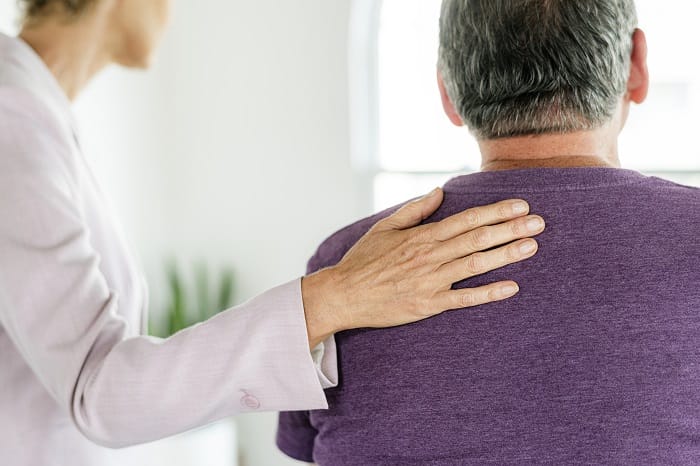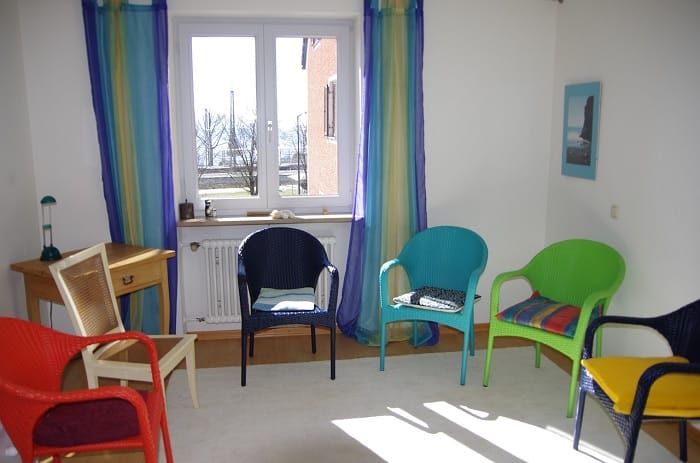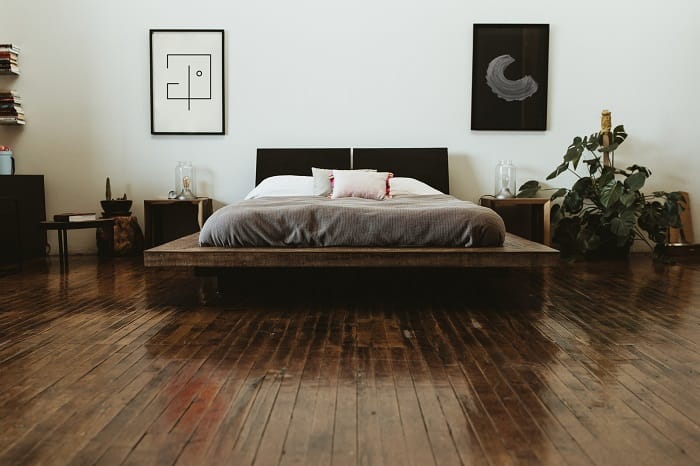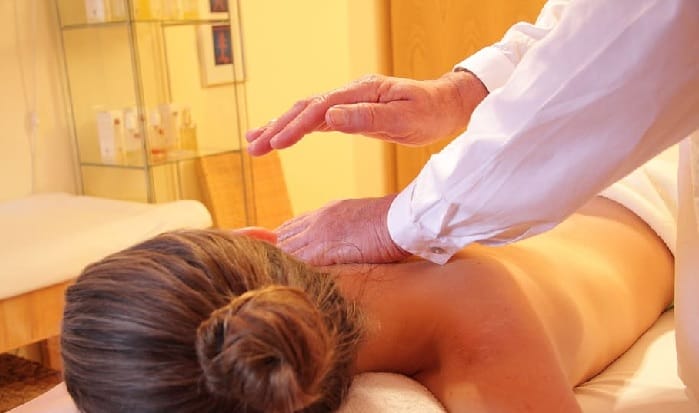Drug and alcohol addiction in a serious issue in Kent, with 10% of adults in Kent reporting drug use in the last year.
This is a problem that needs the right attention from appropriate drug and alcohol rehab services.
Are you looking for a quality drug or alcohol rehab in Kent or near Kent? At Rehab 4 Addiction, we offer a range of good Kent rehab options.
If alcohol and drug addictions are causing damage to you and your life, don’t wait before going to rehab.
Denial is a big part of addiction, but it’s better to trust professionals and follow their advice.
We provide quality rehab treatment options in Kent. These include drug and alcohol rehabs in Kent. Residential rehab is one option to consider.
At Rehab 4 Addiction we know the negative impact of addiction. We know it can hurt your family life, work life and health. Many people working for us are in recovery.
Contact us today about drug and alcohol rehab in Kent or near Kent. We know what you’re going through, and we can help.
Rehab 4 Addiction in Kent
Address: 22 Church Street, Maidstone, Kent, Kent. ME14 1ENTelephone: 0162 296 5032
Business hours: Open 24 Hours/7 days a week
Services in Kent: Addiction Treatment, Alcohol Detoxification, Alcohol Rehabilitation, Drug Rehabilitation, Residential Rehab for Addiction, Alcohol Home Detox

Choosing the right Kent rehab programme can be tricky. If you are in the southeast of England and need rehab, Kent is one location to consider.
The inpatient rehabs here in Kent have very good facilities and experienced staff.
One part of choosing the right alcohol rehab programme in Kent is deciding between inpatient and outpatient rehab programmes.
Inpatient programmes are for those who want to live in a treatment centre in Kent or near Kent during detox and treatment.
Residential rehab gives you access to 24/7 medical care and takes away the risk of relapse.
We go into more detail about inpatient vs outpatient programmes in Kent below.
To make sure you end up at the right drug and alcohol rehab in Kent for you, give our team a call on 0800 140 4690

It can of course vary from situation to situation, but some of the most common questions asked in assessments of this kind include:
We offer a free assessment, and can help you find a suitable rehab in Kent.
A majority of these will be presented in a questionnaire format. And before those questions, we’ll also assess your health.
Across this stage, we’ll try and figure out how to personalise which rehab treatment you receive. Every case of addiction is unique and has a lot of variables.
Many people also have different underlying causes, which need to be rooted out at rehab for the addiction to get better.
Finally, many people are affected by addiction at different levels. It nearly always worsens over time, but certain substances are also more addictive than others.
After this, you can proceed to the three stages of drug and alcohol rehab in Kent: detoxification, rehabilitation and aftercare.
When you first get to rehab or other sober living houses, you will undergo a psychiatric assessment to be diagnosed and receive appropriate treatment. This will be done by a psychiatrist or other medical professional. This will help you on your path to sobriety.
You may also need to have a medically-assisted detox at rehab – especially for those going through alcohol detox or heroin withdrawal, or for those who have a physical dependence on a substance, as the symptoms can be very dangerous.
Your rehab may prescribe you Librium or Chlordiazepoxide for alcohol withdrawal symptoms.
Long-term consequences of substance abuse can include hepatitis, Wernicke Encephalopathy, alcohol withdrawal syndrome and more.
After treatment, you will make a rehab aftercare programme which will help prevent relapse after you leave rehab in Kent.
Begin the admissions process at a drug and alcohol rehab in Kent or near Kent by calling our team today on 0800 140 4690

When choosing an inpatient rehab in Kent, there are certain things that you need to bear in mind.
After all, this is all about you and your own needs.
Here are some of the most common questions when choosing a rehab centre in Kent:
If you wish to find out more about your rehab options in Kent, or would just like to chat with a member of our team, contact us today.
For more tips and tricks on choosing the right drug and alcohol rehab in Kent, call our team today on 0800 140 4690

As mentioned previously above, here we will discuss the differences between attending inpatient rehab treatment or opting for outpatient rehab treatment in Kent.
Inpatient rehab treatment means living in rehab for up to 6 weeks. You will move into one of our state-of-the-art drug rehabs in Kent. There you will receive round-the-clock care.
Patients receive a programme of counselling. This takes the form of group support and 1-on-1 therapy. After leaving, patients receive aftercare to ease them into normal life.
Residential drug and alcohol rehab in Kent is more intense. It tends to be better at curing people than outpatient courses.
Patients get all the benefits of outpatient treatment and more. These may include alternative rehab treatments. Examples are yoga, acupuncture, massages, mindfulness, and more.
In residential treatment in Kent, the patient has no access to drugs or alcohol. This is a major advantage over outpatient programmes.
With outpatient rehab treatment, the patient enters Kent alcohol rehab in the morning. Then they go through a series of treatment sessions.
These include one-on-one sessions, group sessions, and workshops. In the evening, when all the sessions are complete, the patient can return home.
Outpatient rehab programmes in Kent can take weeks or months. They tend to last longer than inpatient programmes. This is because they only take a few hours a day.
The problem with outpatient rehab treatment in Kent is that patients have a greater risk of relapse. It can be harder to resist the urge to indulge in alcohol or drugs.
With residential rehab treatment in Kent, there is no such risk. The treatment is also more intense.
Outpatient treatment allows the patient to keep up with other commitments. It is easier to balance with work life and home life. But it has a lower chance of curing you.
For help choosing between inpatient or outpatient drug and alcohol rehab in Kent or near Kent, call our team today on 0800 140 4690

We’ve talked already about the difference between inpatient and outpatient rehab programmes in Kent and near Kent.
In the next section, we go into more detail.
Choosing between inpatient and outpatient rehabs in Kent is really important. It can be a big factor in the success of your treatment.
To help you make the right decision, we’ve listed some of the points about both below.
The cost of drug and alcohol rehab in Kent generally ranges based on two things: the length of your stay/treatment and the kind of room you go for.
A 10-day detox with a single occupancy room will usually be between £3,000 and £6,000. Multiple occupancies then go down from £2,000 to £4,000.
A 28-day rehab stay, meanwhile, will be around £6,000 for multiple occupancies and £8,000 to £12,000 for single occupancy. Finally, an at-home detox will come to around £1,500.
Below, we list several drug and alcohol rehabs in Kent:
Address: Hay Farm, Ham, Sandwich CT14 0EE
Telephone: 0130 484 1700
Google Maps: https://www.google.com/maps?cid=16270413659476482257
Contact us today to enquire about admissions into this clinic.
The Care Quality Commission’s independent report for this organisation is publically available on the CQC’s website. You can check here where the report can be found.
Some positives from the CQC report included:
Some areas of improvement included:
Address: Kenward Trust, Kenward Rd, Yalding, Maidstone ME18 6AH
Telephone: 0162 281 4187
Google Maps: https://www.google.com/maps?cid=10908763154020512369
Contact us today to enquire about admissions into this clinic.
The Care Quality Commission’s independent report for this organisation is publically available on the CQC’s website. You can check here where the report can be found.
Some positives from the CQC report included:
Some areas of improvement included:
Address: 23 The St, Bapchild, Sittingbourne ME9 9AD
Telephone: 0179 543 1751
Google Maps: https://www.google.com/maps?cid=5983869180330129476
Contact us today to enquire about admissions into this clinic.
The Care Quality Commission’s independent report for this organisation is publically available on the CQC’s website. You can check here where the report can be found.
Some positives from the CQC report included:
Some areas of improvement included:

When you first start your rehab journey, you might wonder whether you should go for private or council-funded rehab in Kent.
This is something you can discuss during your initial conversations with us, but it’s also something you should at least think about going in.
In all parts of rehab, it’s important to have a good base of knowledge.
Doing as much research as you can beforehand, on this or any other issue, will make you feel more confident in your decision when choosing your rehab.
It will also allow you to make better decisions, especially in the initial planning stages.
Both have their benefits, but generally, private rehab in Kent is faster, easier to access and more personalised. This is primarily due to budget cuts for publicly funded services, in addition to long waiting lists.
On the other hand, the processes available through localised treatment could help you in the pre-rehab stages.
The other option does have pre-stages too – this is another case where either option could suit you.
Free and NHS-run addiction rehab services in and near Kent include:
Address: Invicta House, Maidstone, Kent, ME14 1XX
Telephone: 01622 221 676
Website: https://www.kent.gov.uk/social-care-and-health/health/drug-and-alcohol
Address: Mill House, Mill St, Maidstone ME15 6XH
Telephone: 03301 281 113
Website: https://www.changegrowlive.org/westkent/help
Address: 6-8 Park Rd, Sittingbourne ME10 1DR
Telephone: 01795 411 780
Website: http://www.turning-point.co.uk/
You can also access support from organisations such as Change Grow Live, We Are With You, Al-Anon, and Alateen.
You can also reach out to places such as the National Institute for Health and Care Excellence, the NHS Foundation Trust and the National Association for Children of Alcoholics.
For more information about choosing between private and NHS drug and alcohol rehab in Kent, call our expert team today on 0800 140 4690

Rehab 4 Addiction offers effective drug and alcohol treatment in Kent.
When they arrive, all patients receive a full test from a trained psychiatrist.
Detox comes first. Then we use talking therapies and holistic therapies to treat the mental side of addiction at rehab in Kent.
This ensures we treat the root causes of this illness as well as its physical symptoms.
This is how the rehab process in Kent works:
To fully understand the experiences of drug and alcohol rehab in Kent, call our team on 0800 140 4690

Most rehab programmes in Kent or near Kent begin with a detox. A safe way to detox is under close medical supervision. Detoxing at home can be risky.
After detox, comes rehab. Rehab is not just about getting ‘clean’. It is about giving people the tools to stay sober in the long run.
We do this through a structured treatment programme in Kent. The aim is to give people healthy coping tactics for dealing with cravings.
Group therapy is after breakfast. It focuses on harmful patterns of behaviour. Group therapy is good for creating a sense of community and building peer support.
In the afternoons at rehab, patients have other therapy sessions. These will be based on their treatment plan.
They include individual therapy, CBT, and family therapy. 12-step meetings may happen after dinner.
There are also a few hours of free time every day at rehab for activities such as sports, reading, writing, or prayer. Patients go to bed at the same time every day to help them get a good night’s sleep.
To find out for yourself what life at a drug and alcohol rehab in Kent is like, call our team on 0800 140 4690

How long drug and alcohol rehab in Kent lasts will depend mostly on how severe your addiction is, as well as how well your treatment goes.
It generally ranges from a week to 90 days but could be much longer if you have a worse addiction.
Even things like your age can have an impact on your recovery at rehab, as the physical toll of your drug and/or alcohol abuse will be worse if you’re older.
Finally, different types of treatment can have different time frames.
Mental and physical health therapies take a unique certain amount of time to work, so your treatment time at rehab will depend on which kinds you end up doing.
The bottom line of all of this:
Recovery from addiction is also a continual journey. Even after your formal treatment is over, you’ll need to continue fighting it.
Many people keep up with this by continuing to access support and advice, as well as support groups in Kent and other physical and mental health treatments.
To get a personalised estimation of how long your time at drug and alcohol rehab in Kent will last, call us on 0800 140 4690

Before mental and physical health treatments, nearly all treatment plans at rehab start with some kind of detox.
Alcohol specifically slows down your brain, whilst also changing the way messages are sent back and forth.
Your brain works to maintain those messages while you’re drunk.
Eventually, if you use and abuse alcohol enough, it will stay in that state even when there’s no alcohol in your system, slowly decreasing over time.
This is why it’s so important to receive medical care when detoxing from alcohol dependence. Rehab can help to keep you safe.
Rehab can treat alcohol withdrawal symptoms, lowering the barriers to a successful recovery.
Some of the most common withdrawal symptoms from alcohol at rehab are:
A detox intends to lessen all of these symptoms, by slowly reducing the amount of alcohol in your system.
That way, there’s no sudden shock to your system when your alcohol level drops at rehab.
Like all other detoxes, you’ll also be prescribed specific medication to help you through.
Make sure your detox is safe and effective with the help of an alcohol rehab in Kent by calling us on 0800 140 4690

If you or a loved one are going to inpatient rehab in Kent, it’s worth preparing.
You should tell your family what you’re doing. You should also tell me your place of work.
This will be stressful but remember you’re not alone. We are here to guide and support you from start to finish.
The rehab centre in Kent that you choose will send out a list of items for you to bring when you have booked.
Here are some of the items you might need during your stay at rehab:
Make sure you’re fully prepared for drug and alcohol rehab in Kent by calling us today on 0800 140 4690

As mental health issues are so commonly connected to addiction, mental health treatments are often a huge part of rehab in Kent.
Many people don’t realise that there’s a difference between therapy and addiction counselling.
Some of the most prominent kinds of therapy and counselling used during drug and alcohol rehab in Kent are:
Other types of therapy available at rehab in Kent include:
Not only this, but other psychiatric treatments are available including contingency management, coping mechanisms, brief intervention, and person-centered care.
Get access to any of these powerful and effective therapies at a drug and alcohol rehab in Kent by calling us on 0800 140 4690

Many people come into the drug and alcohol rehab process with multiple disorders or issues. This could be mental health issues, physical health issues, or even multiple addictions.
Either way, it’s important that all of these are acknowledged in the planning stages of your treatment in Kent.
As we work to individualise your treatment at rehab, we also need to take every piece of context into account.
To use one example: if you’re receiving mental health treatments solely for addiction and not any other issues you might have, it won’t work effectively.
The mental health issues that you’ve either developed as a result of your addiction or already had when it started, will still be there, unresolved at the end of your rehab treatment.
Treatment for multiple addictions is also more complex, as the different effects of both can often intertwine to make a tangled web.
Some mental health disorders that we can treat at rehab in Kent include:
For mental health support unrelated to addiction, visit Mind UK, Young Minds, Rethink Mental Illness, Samaritans, and Papyrus.
Learn how a drug and alcohol rehab in Kent will support your mental health by calling us on 0800 140 4690

As addiction is a continual battle, you’ll also need to keep fighting after your main treatment is over.
Recovery isn’t impossible. But it does take a lot of work and addiction isn’t something that can be fully cured.
Through drug and alcohol rehab in Kent, we can give you the tools for this.
We can also support you through aftercare and beyond, whenever you need us, to make sure you’re on track.
It doesn’t matter how many times you’ve been through treatment. We’ll be there.
The aftercare stage in Kent, which typically follows detoxification and rehabilitation, can help with the post-treatment transition.
You’ll continue your healing on a localised level and will have all the support you gained in the main part of rehab behind you.
A good relapse prevention plan is also important in the long term. There are a couple of key components that need to go in there to make it truly effective, the first being any triggers or cravings.
You need to identify this right from the start at rehab, so you can catch them out.
You’ll also need a plan for if you do relapse, as well as contact details of anyone you’d want to get to in that situation.
That way, if the worst does happen, exactly what should happen after rehab will be set in place.
Finally, if you have any lifestyle changes to make once you get out of rehab in Kent, those should also be included.
This will be discussed during your treatment and could include work, your current home environment or your personal life.
This may be tough to accept, but if anything at home was fuelling your addiction, it needs to be confronted later down the line.
Find out how drug and alcohol rehab in Kent will help you avoid relapse for good by calling us on 0800 140 4690

You might be reading all of this and have realised that rehab of the kind we’re talking about isn’t for you.
That’s completely fine, as there are many alternatives in Kent. First of all, you could contact your GP to look at localised options.
You also don’t have to go into a residential rehab if you’d be uncomfortable being away from home.
Even as a concept it can be too intense and dramatic for some, especially for homebodies in a supportive environment.
Inpatient treatment at rehab would suit those kinds of people, as well as those with less severe issues who don’t need treatment that’s as intense.
In this scenario you’ll recover at home, while making regular visits to a centre.
Many of the treatments are similar if not the same to residential rehab in Kent. But the environment is different and suits a lot of people more.
This is something else that we’ll be able to discuss in our initial conversations, if and when you choose to get in touch with us.

Addiction can often make people feel alone. But there are so many people experiencing the same issues as you.
Through groups like Alcoholics Anonymous (AA), Narcotics Anonymous (NA)and Cocaine Anonymous (CA), you can all support each other after rehab.
In these confidential sessions, you can also share your story and hear the stories of others too.
This can be very emotionally freeing, especially if you’ve been keeping everything bottled up for all this time.
This is also something that you can access in any kind of rehab in Kent, or even after you’ve finished treatment.
These often focus on religion and the concept of a higher power.
Below, we list varipus Alcoholics Anonymous Meetings in thoughout Kent at various locations:
SMART Recovery is another organisation which helps people in recovery to meet and support one another.
Its benefits include an active online community, which can be a better option for some individuals than in-person meetings.
You could go to a twelve step programme alongside rehab, or if your addiction is mild, you may prefer to go instead of rehab.
It is an alternative to groups like alcoholics anonymous, or programmes like the 12 steps programme, and can offer an alternative (or simultaneous) avenue of support.
SMART recovery focuses on the fact that each individual is in a different stage of their addiction recovery path, and places an emphasis on rationality and the acceptance of mistakes and relapses.

We understand the negative impact of addiction on family members. For this reason, it can be useful for families to get involved at all stages of the process at rehab.
Patients can use their laptops, tablets or mobile phones during rehab in Kent.
This ensures they may contact their loved ones during their stay.
If you think you could benefit from the help of your family during rehab, then start your recovery journey today by contacting us on 0800 140 4690

Residential treatment in Kent is only the first step towards recovery. The most important thing is staying clean in the real world.
That is why we offer the highest quality of outpatient therapy and support.
This continues after you leave rehab in Kent. You will be able to contact us for support at any time.
Patients are always welcome to come back at any time if they are struggling.
All of our residential rehab programmes in Kent are backed up by a year’s worth of aftercare.
We keep close contact with our patients in the weeks and months after they leave our care. This helps reduce the risk of relapse.
Group therapy and support from everyone at our rehabs mean that our patients feel supported.
We aim to get everyone who comes through our doors clean and keep them clean.
Make sure your time at drug and alcohol rehab in Kent comes with sufficient aftercare by calling our team on 0800 140 4690

In our rehabs in Kent, you will get 24/7 support and care. This is from specialists with years of experience.
They will do all they can to help you. That means one-on-one sessions, therapy, holistic treatments, and more.
Rehab helps you to stay sober throughout your stay with 24/7 care, supervision and treatment.
You can expect complete and total devotion to our patients and their needs.
Rehab 4 Addiction offers access to a range of addiction treatments across Kent, including Maidstone, Gravesend, Canterbury, Dover, Margate, Folkestone, Gillingham, Ramsgate, Tunbridge Wells, Sevenoaks and Dartford.
All of the rehab treatment centres in Kent we work with offer the highest standard of services and are regulated by the Care Quality Commission.
This article was written by Boris Mackey. You can connect with Boris online at LinkedIn or X.com.
To discover your road to recovery, call us today on 0800 140 4690